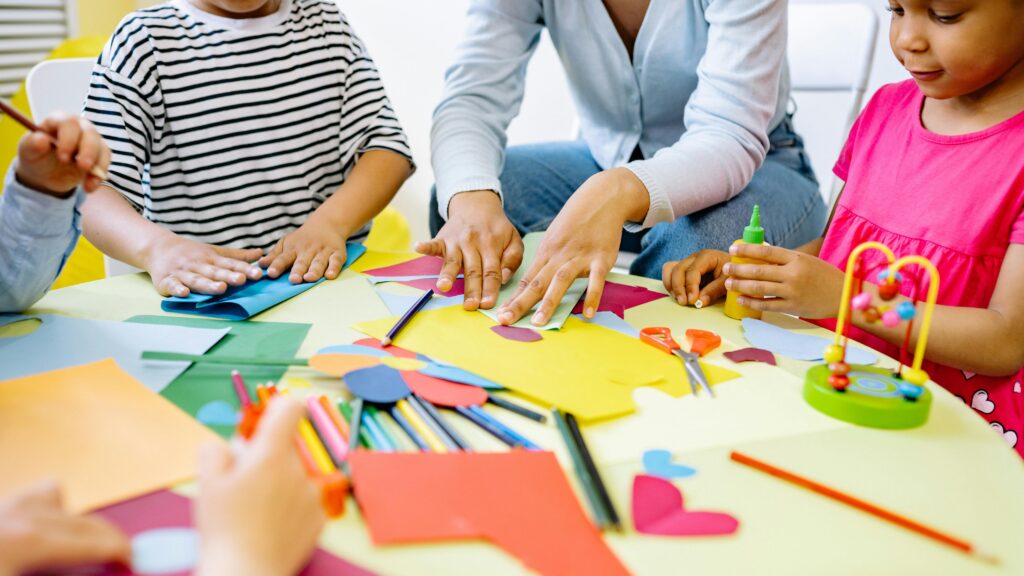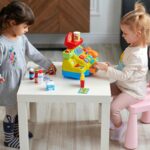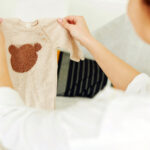Starting nursery is a big milestone for both children and parents. For many families in the UK, it marks the first time their little one will spend regular hours outside the home. While the transition can feel daunting, being well prepared can ease the nerves and set your child up for a positive start.
One of the most practical ways to prepare is by packing the right items. From spare clothes to comfort toys, a good nursery bag can help your child feel comfortable and ready for the day ahead. This guide covers everything you need to pack, what not to pack, tips from UK parents, and expert advice on preparing for the transition.
Why Packing Matters
Having the right items on hand ensures that your child’s day runs as smoothly as possible. Nurseries usually provide essentials like meals, milk, and nappies if agreed in advance, but they expect parents to bring personal items such as clothing, comforters, or medication.
According to Family Lives UK, preparing your child’s belongings also helps create a sense of security. Familiar items from home can ease separation anxiety and give comfort during the day.
Parent Tip: Ask your nursery for their recommended packing list. Every setting is slightly different, and some provide more than others.
The Essential Nursery Packing List
Here is a breakdown of what most nurseries in the UK expect parents to pack.
Clothing
Spare outfits: At least two full sets, including tops, trousers, socks, and underwear.
Seasonal extras: Hat and gloves for winter, sunhat for summer.
Comfortable shoes: Easy to put on and suitable for play.
Pro Tip: Choose clothes that are easy to wash. Nursery days can be messy, and delicate fabrics are often impractical.
Nappies and Toileting
Enough nappies for the day (if not provided by the nursery).
Wet wipes and nappy cream.
Pull ups or spare pants if potty training.
Feeding
Bottles or sippy cups clearly labelled.
Formula milk or breast milk if required.
Snacks if your nursery asks parents to provide them.
Comfort and Sleep
Comforter, soft toy, or blanket from home.
Dummy if your child uses one, with a labelled container.
Sleeping bag or sheet if your nursery requires you to provide bedding.
Health and Safety
Any prescribed medication with clear instructions.
Sun cream in summer.
Teething gel or other approved over the counter remedies if agreed with staff.
Chart: Nursery Bag Checklist
| Category | Items to Pack | Notes |
|---|---|---|
| Clothing | 2 spare outfits, seasonal extras, shoes | Label everything |
| Toileting | Nappies, wipes, cream, potty training supplies | Check nursery policy |
| Feeding | Bottles, milk, cups, snacks | Label bottles |
| Comfort & Sleep | Toy, blanket, dummy, sleeping bag | Keep extras at nursery |
| Health & Safety | Medication, sun cream, teething gel | Provide instructions |
What Not to Pack
It is tempting to overpack for the first nursery days, especially when you are nervous about your child being away from you. However, nurseries often advise parents to keep bags simple. Too many items can overwhelm staff and increase the risk of things being lost.
Items usually not needed include:
Large toys or multiple comforters (one is enough)
Extra snacks not agreed with the nursery, especially those that may contain allergens
Jewellery or accessories, which can be unsafe for playtime
Electronic devices such as tablets or music players
Expert Tip: Keep the nursery bag lightweight and limited to essentials. This makes it easier for staff to help your child and ensures nothing important gets misplaced.
Labelling Is Key
One of the most common tips from experienced nursery parents is to label everything. From socks to water bottles, labelled items are far less likely to get lost.
There are plenty of UK based companies that offer durable name labels for clothes, shoes, and bottles. Iron on or stick on labels save time and last through multiple washes.
Expert Tip: Always have spare labels at home. New items will keep entering rotation, and staff will appreciate not having to guess who owns what.
Tips from UK Parents
Hearing from other parents can make the process feel less daunting.
Parent Tip: “We bought a spare set of waterproofs and wellies to keep at nursery all year round. It saved us from forgetting them on rainy days.” – James, dad of two in Birmingham.
Parent Tip: “I pack a small zip bag with nappies, wipes, and cream. That way staff can grab everything they need quickly without rummaging.” – Aisha, mum from Manchester.
Parent Tip: “Labelling is everything. Even socks go missing if they are not labelled. I used stick-on labels that survive the wash and it has been a lifesaver.” – Emma, mum from Bristol.
Adding these small touches to your nursery preparation can make everyday routines smoother for everyone.
Preparing Your Child Emotionally
Packing the bag is one part of the process, but preparing your child emotionally is just as important. According to the NHS Start for Life guidance, children cope better with nursery transitions when routines are introduced early.
Talk positively about nursery and what fun activities they will do.
Visit the nursery together before the official start day.
Practice short separations at home to help your child adjust.
Encourage your child to carry their own nursery bag to feel independent.
Parent Tip: Slip a small family photo into their bag. Many nurseries allow children to keep it in their drawer or cubby for comfort.
Preparing for Transition Week
Most UK nurseries offer a settling-in period before your child attends full days. This transition week is a chance for both you and your child to adjust gradually.
Start with short visits: One or two hours to explore the environment.
Extend time gradually: Build up to half days and then full days.
Stay nearby if asked: Some nurseries suggest parents remain on site during the first short visit to reassure the child.
Debrief at home: Talk to your child about their day, using positive and simple language.
According to NHS Start for Life, easing into new routines slowly helps reduce separation anxiety and builds trust with staff.
Pro Tip: Keep your own schedule lighter during transition week. Being available for quick pickups or flexible timings can help your child adjust more calmly.
Managing First Day Jitters
The first day of nursery can be emotional for both parent and child. Packing the right items will help, but preparation also involves mindset.
Arrive on time but avoid long goodbyes. A quick hug and positive words work best.
Trust the staff. They are experienced in handling first day tears and helping children settle.
Keep your phone close but avoid calling unless necessary. Staff will contact you if your child needs you.
Pro Tip: Plan a small treat for yourself after drop off. A coffee, a walk, or meeting a friend can help ease the transition for you too.
Building a Routine
Consistency helps children feel safe. Once you know what your nursery expects daily, create a routine at home:
Pack the bag the night before.
Check for seasonal extras such as hats, coats, or sun cream.
Make your child part of the process by letting them choose their comfort toy or water bottle.
Final Thoughts
Starting nursery is a huge step, but the right preparation can make it a positive experience for your child and for you. By packing essential items, labelling everything, and adding comfort items from home, you are setting your child up for a smoother transition. Emotional readiness is just as important as practical readiness, so take the time to talk, visit, and reassure your little one before their big first day.
With preparation, consistency, and a positive attitude, nursery can become a safe, fun, and nurturing place where your child begins to build independence and confidence.
Frequently Asked Questions About Nursery Packing
Do nurseries provide nappies and wipes?
It depends on the setting. Some nurseries include them in fees, while others expect parents to supply their own. Always check with staff.
How many spare outfits should I pack?
Two is usually enough for a typical day, but some parents prefer three if their child is prone to messy play or potty training accidents.
Should I send toys from home?
Comfort toys are usually welcome, but it is best not to send anything too valuable in case it gets lost. Ask your nursery about their policy.
How do I manage seasonal changes?
Keep a bag of labelled seasonal extras at nursery, such as wellies and waterproofs for winter or sunhats for summer. Staff can use them when needed.
What is the best way to prepare for separation anxiety?
Talk positively about nursery, practise short separations at home, and make drop-offs quick and reassuring. Staff are trained to support children through this stage.



